It could be said Roberta McKenna was born at the wrong time. It would have been nice if her life had unfolded in an era when a farm girl from Ohio could grow up to be and do anything she wanted without suffering sexism and harassment at every turn.
But then again, truly remarkable people define the times they are in — not the other way around. And McKenna, the Women In Trucking Association’s February member of the month, is one such person.
“In the area I grew up in, girls were either a cashier, you worked in a sewing factory, as bank teller or nurse. A lot ended up being nurses,” she said. “There was no opportunity to be a truck driver or a mechanic or anything like that. Women did not do that. It was frowned upon. ‘That’s a man’s job.’”
McKenna always knew she was never going to do anything that conventional, not growing up at the elbow of her grandfather John Hagan who farmed 300 acres outside of Malaga, Ohio. Like all farmers, Hagan served as both operator of and mechanic for his equipment as the situation demanded. That included his truck, and he passed these skills onto his granddaughter — along with the toughness and independent streak that would fuel McKenna for the rest of her life.
“I was always out helping (my grandfather), and growing up around the equipment, I always had a fascination for the trucks,” she said. “But in Ohio, women didn’t drive trucks. Being in the farm country, you would think there’d be more opportunities there, but there wasn’t. You’d hear about it once in a while, but it was very, very rare.”
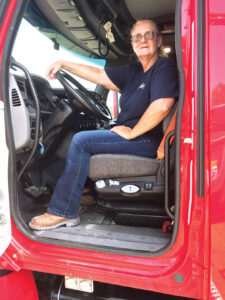
Straining against such social norms, McKenna moved to Maryland in her 20s, where a youthful marriage unraveled, leaving her a single mother with a son to support. A friend suggested driving a big rig.
“I was about 25,” she said. “At the time, I was a photo technician retail manager, which sounds great. Didn’t make a whole lot of money, but had a nice title.
“My friend helped me get my license,” she shared. “He had a brand-new Western Star with a trailer, and he taught me how to drive and how to get around in different situations. I got my CDL at 28.”
Holding a commercial license was quite an accomplishment given the times, but a piece of paper alone doesn’t pay the bills. When looking for a job opportunity, McKenna heard about a local paving and construction company that thought differently about its workforce than many other employers at the time.
“Cunningham Paving of Crofton, Maryland, hired mainly women,” she said. “I went in there and I talked to the owner, Jimmy Cunningham, and he gave me a shot. We mainly were hired for running the dump trucks hauling asphalt.”
McKenna doesn’t think Cunningham was trying to make a social statement at the time; she believes that hiring women just made great business sense.
“Whether you want to call it ‘vision’ back then or what, but with women driving the equipment he had better interest rates, fewer accidents,” she said. “We didn’t get out there and showboat. A lot of guys showboated. The women didn’t have to prove a point as much as the men and their egos.
“It was a company that made a statement,” she continued. “Even our mechanic was a female, and she was tough! She was a tough cookie.”
McKenna drove for the company for two years, and she would have probably stayed there longer had a local controversy not driven her out. A company driver was involved in a traffic fatality, which unleashed a wave of community animosity toward the other employees.
“We started getting death threats,” she said. “People would pull up beside us, and just because we were driving one of the company trucks, they would yell at us. I mean it was ridiculous the threats that we were getting.”
McKenna soon landed at a local bakery supply house, and it didn’t take long to understand this was a whole different ball game when it came to workplace environment. Not only was the freight physically demanding — moving 100-pound sacks of flour and barrels of other baking supplies — but there was considerable hostility among her new co-workers.
“I was with them for five years, and that was a tough company,” she said. “Some people respected me; most of them did not. Like, ‘I wouldn’t have my wife doing this. This is a man’s job. You shouldn’t be doing this job. You should be home barefoot and pregnant.’
“It was bad, the harassment I got,” she shared. “But I had a handful of guys who stood there with me and helped me get through it.”
McKenna’s allies taught her how to maneuver and carry the freight — some of it approaching her own body weight — without injuring herself. Management intervened whenever harassment was brought to their attention, but McKenna wouldn’t rat anyone out. She was there to do a job, covering a territory that ran through Maryland, Pennsylvania, New York and Virginia, and no one was going to keep her from doing it.
During the five years at the bakery supply, she went from being a curiosity to one of the most-requested drivers the company had.
“It was always funny with the little old ladies who had their bakeries. They were a trip,” she said. “A couple were, ‘Hey, we’ve got a woman driver now.’ ‘Oh, there’s no women doing this stuff.’ ‘Yeah, we’ve got a woman driver.’
“One time in particular, I’m backing down an alley,” she recalled. “You’ve got like 2 inches on either side and I’m backing down this alley and I see a couple people standing back there. I go to get out of the truck and (hear), ‘It is a woman! There is a woman!’”
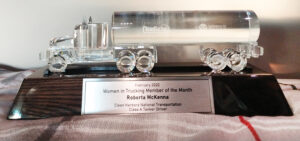
By the time she left, McKenna was a seasoned pro. She then spent 10 years driving for a grocery chain, where she got her first experience hauling liquids, and then she drove for Walmart. By the early 1990s she was burned out on East Coast traffic and seeing the same scenery, so she relocated to Texas. There, she landed with outfits that started sending her to places she’d never been. By the time she joined Clean Harbors in 2013, she’d hit 47 of the lower 48 states.
“South Dakota was the one state I hadn’t been to,” she said. “I still haven’t made it there.”
Clean Harbors opened a new chapter on McKenna’s resume — driving a tanker hauling hazardous waste, spills, oils and in her words, “a few things I don’t want to mention.” Dangerous cargo notwithstanding, she loves her company, from the work environment to the management.
“I love driving the country. You get to see so much. You get to learn so much. You meet so many wonderful people,” she said. “Coming to Clean Harbors has been relaxing.”
McKenna has no intention of retiring, especially now, when she can see how the trails she blazed and paved have become a firm roadbed for many others to follow. She’s proud to see today’s women out on the road or through the WIT organization, and she offers the same hard-won advice about making it in a man’s world any time she’s asked.
“Cover your ass. Don’t become a victim,” she said. “It’s not an easy job. Whether you want to do the local, whether you want to do the long haul, it takes a certain personality and a certain background. But if you stick it out, you can make good money. There are so many different opportunities in the industry now that weren’t back then. You can have a good career. I’m proof positive. I’ve been here 36 years. You can do it.”
Dwain Hebda is a freelance journalist, author, editor and storyteller in Little Rock, Arkansas. In addition to The Trucker, his work appears in more than 35 publications across multiple states each year. Hebda’s writing has been awarded by the Society of Professional Journalists and a Finalist in Best Of Arkansas rankings by AY Magazine. He is president of Ya!Mule Wordsmiths, which provides editorial services to publications and companies.

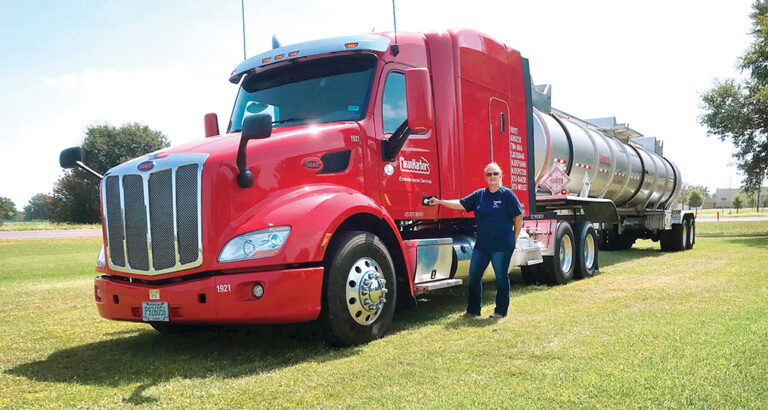

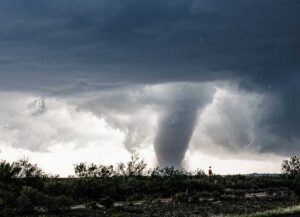
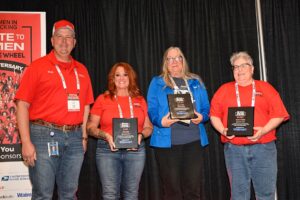


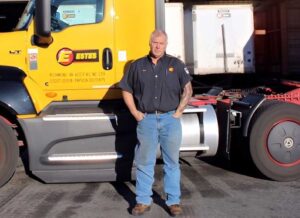

Thank you WIT for continuing to highlight women who have paved the way in this industry. I too was a young woman breaking into this industry in 1976 as a steel hauling, flatbedder to boot. All the trials and tribulations mentioned in this article….ditto….sounds like I’m reading my own biography, …good job.